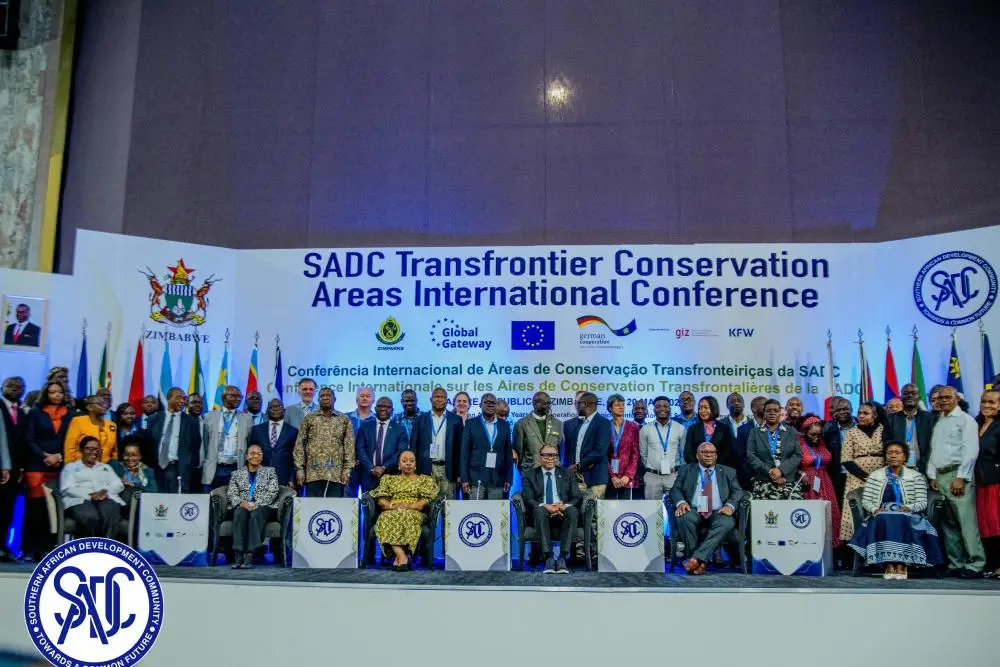By Thandiwe Garusa
FOLLOWING a week-long summit, the Southern African Development Community (SADC) has called on its Member States to urgently develop practical and customised strategies to tackle the region’s escalating human-wildlife conflict cases.
SADC held the Transfrontier Conservation Areas (TFCAs) conference and summit which celebrated 25 years of regional cooperation in biodiversity conservation, sustainable development, and ecotourism, from Monday to Friday this week in Harare.
The summit was running under the theme: “Transfrontier Conservation Areas-25 Years of Cooperation For Regional lntegration and Sustainable Development.”
TFCAs are regions that span national borders, encouraging cooperation between countries to manage natural and cultural resources sustainably while boosting economic opportunities for local communities.
In a communique released after the summit Friday, the SADC Secretariat said the summit made a strong appeal for legislative and cross-sectoral action to address the growing incidents of human-wildlife conflict across the region.
“Summit urged Member States to consider the development of tailor made, practical and effective approaches to address increased human wildlife conflicts involving all the relevant development and conservation sectors and urged partners to prioritise the development of solutions including legislation to address human wildlife conflict in their support to the region.”
According to Zimbabwe Parks and Wildlife Management Authority (ZimParks)’s statistics, around 300 people were killed in human-wildlife conflicts across the country between 2019 and 2023 with recent reports indicating that 18 people were killed in this year’s first quarter alone.
The regional bloc also urged its Member States to step up implementation of the regional Law Enforcement Anti-Poaching (LEAP) strategy, highlighting it as a critical tool in the fight against wildlife crime and calling for strengthened cooperation across borders, international partners, and local communities in TFCAs.
The summit also urged countries to strengthen the meaningful and active participation of rural communities including the youth in TFCAs and stressed the importance of accountability to ensure equitable benefit sharing in fostering inclusive conservation efforts across the region’s TFCAs.
